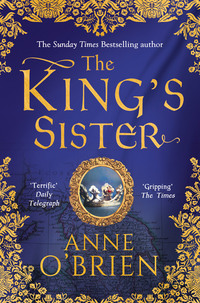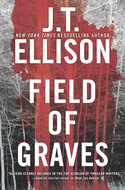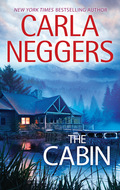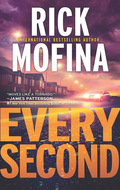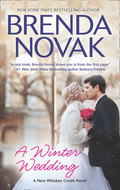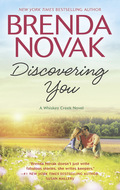Książki nie można pobrać jako pliku, ale można ją czytać w naszej aplikacji lub online na stronie.
Czytaj książkę: «The King's Sister»
One betrayal is all it takes to change history
1382. Daughter of John of Gaunt, sister to the future King Henry IV, Elizabeth of Lancaster has learned the shrewd tricks of the court from England’s most powerful men.
In a time of political turmoil, allegiance to family is everything. A Plantagenet princess should never defy her father’s wishes. Yet headstrong Elizabeth refuses to bow to the fate of a strategic marriage. Rejecting her duty, Elizabeth weds the charming and ruthlessly ambitious Sir John Holland: Duke of Exeter, half-brother to King Richard II and the one man she has always wanted.
But defiance can come at a price.
1399. Elizabeth’s brother Henry has seized the throne.
Her husband, confidant to the usurped Richard, masterminds a secret plot against the new king. Trapped in a dangerous web, Elizabeth must make a choice.
Defy the king and betray her family. Or condemn her husband and send him to his death.
Sister. Wife. Traitor. She holds the fate of England in her hands.
Praise for the author ANNE O’BRIEN
‘One of the best writers around … she outdoes even Philippa Gregory’
—The Sun
‘The characters are larger than life … and the author a compulsive storyteller.’
—Sunday Express
‘This book has everything—royalty, scandal, fascinating historical politics and, ultimately, the shaping of the woman who founded the Tudors.’
—Cosmopolitan
‘A fascinating and surprisingly female-focused look at one of the most turbulent periods of English history’
—Publishers Weekly
‘Better than Philippa Gregory’
—The Bookseller
‘Another excellent read from the ever-reliable Anne O’Brien’
—The Bookbag
‘Anne O’Brien is fast becoming one of Britain’s most popular and talented writers of medieval novels.’
—Lancashire Evening Post
‘A must-read for any historical fiction fan’
—The Examiner
‘Her writing is highly evocative of the time period … O’Brien has produced an epic tale.’
—Historical Novel Society
‘Anne O’Brien’s novels give a voice to the “silent” women of history.’
—Yorkshire Post
‘Brings the origins of the most famous royal dynasty to vibrant life’
—Candis
‘I was keen to see if this book … lived up to the hype—which it did.’
—Woman



ISBN: 978-1-474-00748-1
THE KING’S SISTER
© 2014 Anne O’Brien
Published in Great Britain 2014
by HQ, an imprint of HarperCollinsPublishers Ltd 1 London Bridge Street London SE1 9GF
All rights reserved including the right of reproduction in whole or in part in any form. This edition is published by arrangement with Harlequin Books S.A.
This is a work of fiction. Names, characters, places, locations and incidents are purely fictional and bear no relationship to any real life individuals, living or dead, or to any actual places, business establishments, locations, events or incidents. Any resemblance is entirely coincidental.
By payment of the required fees, you are granted the non-exclusive, non-transferable right and licence to download and install this e-book on your personal computer, tablet computer, smart phone or other electronic reading device only (each a “Licensed Device”) and to access, display and read the text of this e-book on-screen on your Licensed Device. Except to the extent any of these acts shall be permitted pursuant to any mandatory provision of applicable law but no further, no part of this e-book or its text or images may be reproduced, transmitted, distributed, translated, converted or adapted for use on another file format, communicated to the public, downloaded, decompiled, reverse engineered, or stored in or introduced into any information storage and retrieval system, in any form or by any means, whether electronic or mechanical, now known or hereinafter invented, without the express written permission of publisher.
Version: 2019-04-12
Map
Descendants of Edward III and the Claims to the English Throne

The Holland Family

The House of Lancaster

For George, with love and thanks. Who else could I persuade to travel the length and breadth of the country with me, in search of people who lived six hundred years ago?
And in memory of my father, Jack Garfitt, 1923-2014. His love of history first fired my imagination.
‘… He (John Holland) was struck down passionately, so that day and night he sought her (Elizabeth) out.’
—Ranulph Higden, The Universal Chronicle of Ranulph Higden
‘When (Elizabeth) took a tearful leave of her husband[…]Holland reproached her bitterly for having, despite his own gloom, rejoiced and made merry when Henry had arrested Richard and himself[…]’
—R A Griffiths, Oxford Dictionary of National Biography
‘For what is wedlock forced but a hell, An age of discord and continual strife? Whereas the contrary bringeth bliss, And is a pattern of celestial peace.’
—William Shakespeare, Henry VI, Part I
Table of Contents
Cover
Praise for the author ANNE O’BRIEN
Title Page
Copyright
Map
Dedication
Chapter One
Chapter Two
Chapter Three
Chapter Four
Chapter Five
Chapter Six
Chapter Seven
Chapter Eight
Chapter Nine
Chapter Ten
Chapter Eleven
Chapter Twelve
Chapter Thirteen
Chapter Fourteen
Chapter Fiveteen
Chapter Sixteen
Chapter Seventeen
Chapter Eighteen
Other titles by the author
Extract
ACKNOWLEDGEMENTS
INSPIRATION FOR THE KING’S SISTER
AND AFTER THE FINAL WORD IN THE KING’S SISTER …
FOLLOWING IN ELIZABETH’S FOOTSTEPS …
QUESTIONS FOR YOUR READING GROUP
CONTACTS
About the Publisher
Chapter One

1380, Kenilworth Castle
‘What’s afoot?’ Henry asked, loping along the wall walk, sliding to a standstill beside us.
It all began as a family gathering: a meeting of almost everyone I knew in the lush setting of Kenilworth where my father’s building plans had provided room after spacious room in which we could enjoy a summer sojourn. Intriguingly, though, the intimate number of acquaintances was soon extended with a constant arrival of guests. So, I considered. What indeed was afoot? A most prestigious occasion. From elders to children, aristocratic families from the length and breadth of the land rode up to our gates, filing across the causeway that kept their feet dry from the inundations of the mere.
Philippa and I watched them with keen anticipation, now in the company of our younger brother Henry, an energetic, raucous lad, whose shrill voice more often than not filled the courtyards as he engaged in games with other boys of the household—dangerous games in which he pummelled and rolled with the best of them in combat à l’outrance. Even now he bore the testimony of a fading black eye. But today Henry was buffed and polished and on his best behaviour. As the thirteen-year-old heir of Lancaster, he knew his worth.
‘Something momentous,’ Philippa surmised.
‘With music and dancing,’ I suggested hopefully.
My father’s royal brothers, the Dukes of Gloucester and York, together with their wives, made up a suitably ostentatious display of royal power. The vast connection of FitzAlans and the Northumberland Percies were there, heraldic badges making a bright splash of colour. There was Edward, our cousin of York, kicking at the flanks of a tolerant pony. Thin and wiry, Edward was still too much of a child for even Henry to notice. The only one notably absent was the King.
‘We’ll not miss him overmuch,’ croaked Henry, on the cusp of adolescence.
True enough. Of an age with Henry, what would Richard add to the proceedings, other than a spirit of sharp mischief that seemed to have developed of late? There was little love lost between my brother and royal cousin.
The noble guests continued to arrive with much laughter and comment.
I was not one for being sensitive to tension in the air when I might be considering which dress would become me most, but on this occasion it rippled along my skin like the brush of a goose feather quill. Chiefly because there were far too many eyes turned in my direction for comfort. It seemed to me that I was an object of some interest over and above the usual friendly comment on the rare beauty and precocious talents of the Duke of Lancaster’s younger daughter. What’s more, on that particular morning, I had been dressed by my women with extraordinary care.
Not that I had demurred. My sideless surcoat, of a particularly becoming blue silk damask, hushed expensively as I walked. My hair had been plaited into an intricate coronet, covered with a veil as transparent as one of the high clouds that barely masked the sun.
‘Is it a celebration?’ I mused. ‘Have we made peace with France?’
‘I doubt it. But it’s a celebration for something.’ My sister’s mind was as engaged as mine as the FitzAlan Countess of Hereford and her opulent entourage arrived in the courtyard, soon followed by the Beauchamp contingent of the Earl of Warwick.
‘It’s a marriage alliance. A betrothal. It has to be,’ I announced to Philippa, for surely this was the obvious cause for so great a foregathering, and one of such high-blooded grandeur festooned in sun-bright jewels and rich velvets. ‘The Duke is bringing your new husband to meet with you.’
‘A husband for me? If that’s so, why is it that you are the one to be clad like a Twelfth Night gift?’ Philippa said, eyeing my apparel. ‘I am not clad for a betrothal. This is my second best gown, and the hem is becoming worn. While you are wearing my new undertunic.’
Which was true. And Philippa more waspish than her wont since my borrowed garment was of finest silk with gold stitching at hem and neck and the tiniest of buttons from elbow to wrist, yet despite her animadversions on her second best gown, Philippa looked positively regal in a deep red cote-hardie that would never have suited me. A prospective husband would never look beyond her face to notice the hem. If the honoured guest was invited here as a suitable match, he must be intended for my sister. As the elder by three years, Philippa would wed first. Did not older sisters always marry before younger ones? I stared at her familiar features, so like my own, marvelling at her serenity. There was still no husband for her, not even a betrothal of long standing, at twenty years. No husband had been attracted by her dark hair and darker eyes, inherited from our father. It was high time, as daughter of the royal Duke of Lancaster as well as first cousin to King Richard himself, even if he was only a tiresome boy, that she was sought and won by some powerful bridegroom.
Of course this would be her day.
I sighed that it behoved me to wait, for marriage to a handsome knight or illustrious prince was an elevation to which I aspired. The songs and tales of the troubadours, of fair maidens lost and won through chivalric deeds and noble self-sacrifice, had made a strong impression in my youthful heart. But today was no day for sighing.
‘I have been counting all the unwed heirs of the English aristocracy who will make suitable husbands for you,’ I said, to make Philippa smile. ‘I have a tally of at least a dozen to choose from.’
It was Henry who grunted a laugh. ‘But how many of them are either senile or imbecile?’
I stepped smartly and might have punched his shoulder but Henry was agile, putting distance between us. And because we were finely dressed, he did not retaliate. I turned my back on him.
‘He could be a foreign prince, of course.’ This was Philippa, ever serious.
‘So he could.’ I turned back to the carpet of richly-hued velvet and silk below, imagining such an eventuality. Would I enjoy leaving England, living far away from my family, those I had known and loved all my life? ‘I don’t think I would like that.’
‘I would not mind.’ Philippa lifted her shoulders in a little shrug.
‘You will do whatever you are told to do.’
Her arm, in sisterly affection, slid round my waist. ‘As will you.’
It did not need the saying. I might be wrapped in girlhood dreams of romantic notions of knights errant, but I had been raised since birth to know the role I must play in my father’s schemes. Alliances were all important, friendships and connections built on shared interests and the disposition of daughters. Henry might be the heir, and much prized as a promising son, but Philippa and I were valuable commodities in furthering the ambitions of Lancaster. My husband would, assuredly, be a man of high status and proud name. He would be an owner of vast estates and significant wealth, possessing an extensive web of connections of his own to meld with those of the Duke into one over-arching structure of power. He would have significance at the royal court, where I would take my place, glowing from his reflected authority and, I hoped, glamour. There was nothing so attractive as a powerful man, as I well knew. And, of course, this man would be worthy of my Plantagenet blood. I would never be given away to a mere nobody, a man without distinction.
When my woman combed my hair to braid it for the night and I inspected my features in my looking glass I knew that my husband would have an affection for me. Was it possible for a man of perception not to fall in love with a face as perfectly proportioned as mine? There was the elegant Plantagenet nose, the dark hooded eyes that suggested a mine of secrets to be explored. My lips were quick to smile, my brows, surprisingly dark and nicely arched, and my hair, unlike Philippa’s, the same lustrous fairness of my mother whose memory faded from me as the years passed. It was a face that promised romance and passion, I decided. No, my husband would be unable to resist and would continue to indulge my desires in formidable style. I was destined to enjoy my future life.
When a shout of laughter went up from one of the groups in the courtyard—enticing Henry to condemn us as dull company and leave us, bounding down the steps to join the throng—I too descended from our high vantage point in search of enlightenment, and discovered Dame Katherine Swynford. Our governess and much more than a mere member of the Lancaster household, she was as close as an oyster, preoccupied with some matter to do with the guests, although why it should fall to her I could not fathom. Did we not employ a steward, a chamberlain, a vast array of servants to oversee every aspect of life at Kenilworth? Indeed I was interested to see a brief shadow flit over her face, a sudden discomfiture that I suspected had no connection with her own illicit and highly scandalous relationship with the Duke.
‘What is it?’ I asked. No point in subtlety as yet another festive group arrived.
When Dame Katherine, intent on speeding away, shook her head so that her veils shivered, suspicions began to flutter in my belly. There was something here that she did not wish to discuss with me.
‘What is it that you know, Dame Katherine, and that I will not like?’
‘Nothing, to my knowledge. What should there be?’ Lightly said but her eye did not quite meet mine.
‘What are we celebrating?’
‘The Duke does not tell me everything, Elizabeth.’
I frowned, not believing her for one moment. I would swear that Dame Katherine could read my father’s mind, and what she could not read she could inveigle him into telling her when she seduced him into moments of love. Or he seduced her. I thought there were no secrets between them now that she had been my father’s mistress for eight years. She was quick to take me to task.
‘Go and wait with your sister, Elizabeth, and show patience. All you need to know is that we look for an important guest. He comes with your father.’
‘And who is this important guest?’ I asked, grasping her trailing oversleeve with no care for its embroidered edge, determined to prevent her escape, so that she sighed and at last turned to face me. I thought there was trouble in her face.
‘It is John Hastings. He is the Earl of Pembroke.’ It meant nothing to me. If I had ever met the Earl of Pembroke I could not recall. ‘He is coming here for a betrothal.’
I smiled. ‘So I thought,’ I admitted. ‘For my sister.’
‘Oh no. For you, Elizabeth.’
‘For me? Why me?’ How gauche I sounded in sudden consternation, and felt my cheeks flush.
‘Because it will be a valuable alliance. He is the grandson of the Countess of Norfolk.’
‘Will I like him?’ Was that the only thought in my mind? At that moment all my powers of reasoned thought were hopelessly awry.
‘Your father will never choose anyone you dislike.’ Dame Katherine was brisk, enough to quell any further discussion. ‘When has he ever used the whip or the spur to take you to task?’
And then, an aura of unease still palpable, she was forcing a path through the throng with an urgent, muttered instruction for the poulterer.
A marriage. I was too delighted to be anxious. This unknown Earl would soon be riding across the causeway and then I could see for myself. If he was an Earl how could he not make me a desirable husband? With the Countess of Norfolk as his grandmother, his importance was guaranteed. For a long moment I simply stood and breathed in the excitement of my future until it seemed that my whole body was suffused with it. Soon, very soon, I would see him for myself.
Why was everyone so reluctant to talk about this dynastically vital occurrence?
Joyful expectancy stamped out any concerns as I rejoined my sister, saying nothing more of my discovery. It would only hurt Philippa that I had been chosen over her for this match. And then when it was becoming more and more impossible to keep my lips tight, my blood sparkling with the opening of this new window in my life, there was warning of the arrival.
‘Come with me!’ I seized Philippa’s hand and dragged her with me, running down the steps into the courtyard.
‘Why?’ she asked, laughing and breathless.
‘You’ll see!’
‘Elizabeth …!’ Dame Katherine called after me as we threaded our way through all the chattering ranks of the nobility of England.
‘Later,’ I called back. Whatever it was, it could wait. Everything could wait. Here was the superbly well-connected man with whom I would spend the rest of my life. I shook out my skirts, smoothed the deeply embroidered panels, ensured that my light veil fell in seemly folds about my face, and prepared to meet my future.
The gates were already open to receive the impressive entourage with mounted retainers, a curtained palanquin, and various wagons loaded with the necessities for a lengthy stay. Most prominent on pennon and flag was the flowing red sleeve, accompanied by a cluster of red martlets on silver and blue, which I took to belong to the Earl of Pembroke. Mightily impressive, I decided, although nothing to compare with my father’s royal leopards, his standards snapping in red and gold and blue in the brisk wind.
I straightened my spine, lifted my chin. The Earl of Pembroke must be aware of the jewel he was getting with marriage to a daughter of Lancaster, first cousin to King Richard himself. If the solid might and luxury of Kenilworth did not impress him—and how could it not? —then I certainly would.
I wondered fleetingly why I had no recall of meeting him before this, since most of the high nobility had come within my orbit at Richard’s coronation three years ago. Perhaps he had been fighting in France. Perhaps he had a high reputation as a knight on the battlefield or in the tournament like my father. I would like that.
And then there was quite a fuss as two ladies were helped to step from the cumbersome travelling litters. The Countess of Norfolk, whom I knew: as thin and acerbic as vinegar, her hair severely contained in the metal and jewelled coils much in fashion when she was a girl. And a lady, younger, whom I did not. But where was he?
‘Where is the Earl?’ I whispered, when I could wait no longer.
Dame Katherine, who had come to watch with us, stepped behind me, her hands closing lightly on my shoulders.
‘There,’ she remarked softly. ‘There he is. John Hastings, Earl of Pembroke.’
I could not see. I looked back at her, to follow the direction of her gaze. I could see no Earl of Pembroke, no man dressed finely, or mounted on a blood horse, who had come to wed me, but I felt no presentiment. Until, behind me I heard my governess sigh and her fingers tightened just a little.
‘There is he. Just dismounting,’ Dame Katherine repeated. ‘With his grandmother, the Countess of Norfolk, and his mother, the Dowager Countess of Pembroke.’
And so I saw him, in the act of leaping down from his horse.
I sucked in a breath of air, every muscle in my body taut. My lips parted. And at that moment I felt Dame Katherine’s palm press down firmly on my shoulder. She knew. She knew me well enough to know what I might do, what I might say in a moment of wilful passion. My head whipped round to read her expression, and the pressure, increasing, was enough to anchor me into all the courtesy and good manners in which I had been raised.
‘Say it later,’ she whispered. ‘Not now. Now it is all about the impression you make. Consider what is due to your birth and your breeding, and to your father’s pride.’
And so I sank into the required obeisance before our well-born guests.
The women of Norfolk and Pembroke returned the greeting. The Earl bowed. Then scuffed the toe of his boot on the stones, rubbing his chin with his fist.
‘He is younger than Henry,’ I whispered back in disbelief, in a mounting horror, when I could.
He was a boy. A child.
‘Yes, he is,’ Dame Katherine murmured back with a weight of compassion in her reply. ‘He is eight years old.’
And I was seventeen. I could not look at Philippa. I could not bear the pity I knew I would read in her face.
As I expected, I was summoned to my father’s private chamber within the hour, allowing me only the opportunity to gulp down a cup of ale and endure a strict lecture from Dame Katherine on the exquisite good manners expected of a Plantagenet lady—whatever the perceived provocation. I promised I would keep her advice well in my mind. So far I seemed to be unable to utter a word.
How could he do this to me? How could my father inflict a boy not out of his first decade on me as my husband? The thoughts revolved and revolved with no resolution. He had done it. At least Philippa did not attempt to console me with bright platitudes. Her kiss on my cheek said it all.
Now I curtsied before Constanza, my father’s Castilian wife, who sat in chilly pre-eminence, her feet on a little footstool. Then to the rest of the party: the Countess of Norfolk, the Countess of Pembroke, the youthful Earl who was watching me bright-eyed. And there was my father coming towards me, a smile of welcome lighting his features. Tall but lightly built, he was every inch a royal prince, and his gaze commanded me.
‘Elizabeth.’ He took my hand to lead me forward and make the introductions. ‘Allow me to present Elizabeth to you. My well beloved daughter.’
The Countess of Norfolk, of matriarchal proportions and inordinate pride—as befitted a granddaughter of the first King Edward and thus Countess in her own right—regarded me, and saw fit to smile on me, the silk of her veils shimmering with emotion. The widowed Countess of Pembroke too smiled, as well she might. Did we not all know that my hand in marriage was a formidable achievement for any household, however noble? Constanza stood and kissed my cheek in as maternal a manner as she could accommodate. Meanwhile the Earl, the boy, stood stiffly to well-drilled attention and watched the proceedings with a fleeting interest. It made me wonder what he had been told of this visit. How much did he understand of its significance?
And I?
I smiled with every ounce of grace I could summon, even when my face felt like the panel of buckram that stiffened Constanza’s bodice in the old Castilian style that she often resorted to in moments of stress. Dame Katherine would have been proud of me as I acknowledged all the greetings. But below my composure I seethed with impotent anger, laced through with fear at what such a marriage would hold in store for me. Was I not old enough for a true marriage, in flesh as well as in spirit? Wallowing in the troubadours’ songs of love and passion, my blood ran hot as I yearned for my own knowledge of such desire. How could I find it with a child?
‘Allow me to present you to John, my lord of Pembroke.’
This boy would not make my heart flutter like a trapped bird. My blood, cold as winter rain, ran thin as I smiled more brightly still, allowing the boy to take my hand and press his lips to my knuckles with a neat little bow.
Certainly he had been as well instructed in the arts of chivalry.
‘This is your betrothed husband.’
I swallowed. ‘Yes, my lord. It pleases me to meet you,’ to the boy. ‘I am honoured that you would wish to wed me.’
No! I wished to shriek. I am not pleased, I am not honoured. I am in despair. But daughters of Lancaster did not shriek. Plantagenet princesses did not defy their father’s wishes.
‘I will endeavour to make you a good wife.’
He was a child, barely released from the control of his nurses. How could I wed such a one as this? I had always known that I would wed at my father’s dictates but never that he would choose a boy who had not yet learned to wield a sword, who was certainly not of an age to live with me as man and wife. There would be no consummation of this marriage after the ceremony.
‘It is I who am honoured that you would accept my hand in marriage,’ the boy replied, pronouncing each word carefully. So he had been informed and trained to it, much like our parrot.
‘When will we be wed, sir?’ The Earl looked up at my father, who smiled.
‘Tomorrow. It is all arranged. It will be a day of great celebration, followed by a tournament where you will be able to display your new skills.’
Tomorrow!
The boy John of Pembroke beamed.
I took a ragged breath.
So soon. So final. Could my father not see my anxieties? Could he not see into my mind and know that this was not what I wanted? If he could, my wishes were as inconsequential as leaves blasted into the corners of the courtyard by a winter gale. My life as an indulged daughter had come to a breathless halt.
‘Give me your hand, Elizabeth,’ the Duke said softly.
I complied.
Onto my finger, the Duke pushed a ring. A beautiful thing of gold set with a ruby of vast proportions that glowed in the light. An object I would have coveted, but in the circumstances roused no emotion at all beyond the thought that the chains of a marriage I did not want were being fastened around me with this valuable gift. The ring was heavy on my finger.
‘A gift to commemorate this auspicious day. It belonged to your mother, my beloved Duchess Blanche. I thought it was fitting that, as a married woman, you should now wear it.’
‘Thank you, sir.’
Never had I said so little when in receipt of a valuable gift, when normally I might have been tiresomely effusive. Today I was as wooden as the figure on the quintain on the practice field.
‘I have made arrangements for your new household. You will receive moneys befitting your status …’
But the Earl was fast losing interest in such detail, his eye straying to a minor commotion in the window embrasure, and my father laughed.
‘Such matters can be dealt with tomorrow. There is no hurry. You have all your lives together after today.’ His eye slid to mine as the ice in my belly solidified into a hard ball of dismay. ‘Why not introduce Lord John to what has taken his attention.’
‘Of course, sir.’
I looked away, fearing that he might read the rebellion in my mind, beckoning to the boy to follow me, trying not to hear the laughter and comment behind me as my espousal was celebrated. I was ashamed of the unexpected threat of tears as the chatter reached me.
‘It is good that they get to know each other.’
‘They will make an impressive pair.’
No, we would not. I towered over him by a good three hand spans.
But I dutifully led the Earl as instructed to where a parrot sat morosely on a perch in the window. Much like I felt. It was large and iridescently green with snapping black eyes and a beak to be wary of. It was never cowed by its soft imprisonment, and it came to me that I might learn a thing or two from this ill-tempered, beautiful bird. By the time we stood before it, my weak tears were a thing of the past. This was the platter placed before me and I must sup from it.
Utterly oblivious to the underlying currents in the chamber, and certainly to my thoughts, the boy became animated, circling the stand to which the bird was chained.
‘What is it?’
‘A popinjay. Have you not seen one before?’
But then I could not imagine the Countess of Norfolk allowing such a bird in her solar. A popinjay represented erotic love rather than the romantic or sentimental.
‘Does it speak?’ the Earl demanded.
‘Sometimes.’
‘What does it say?’
